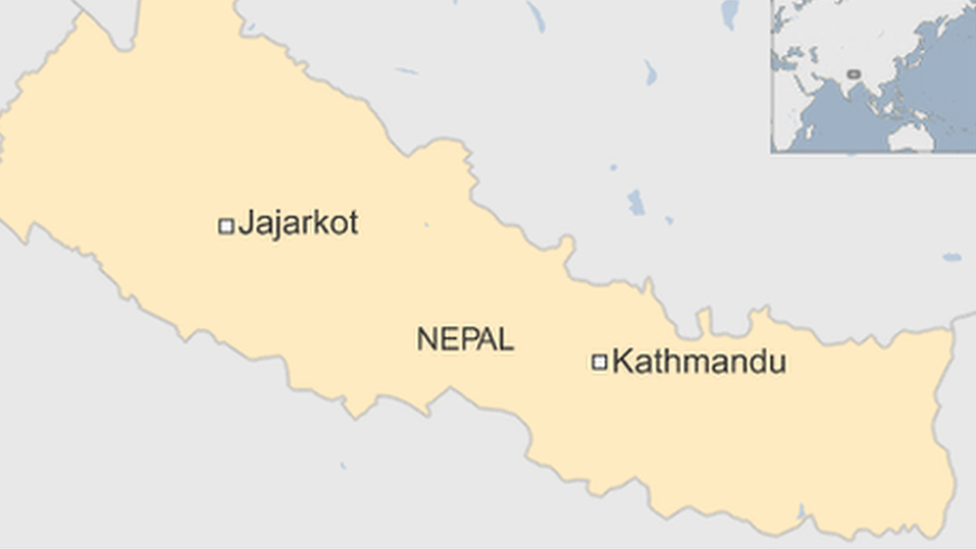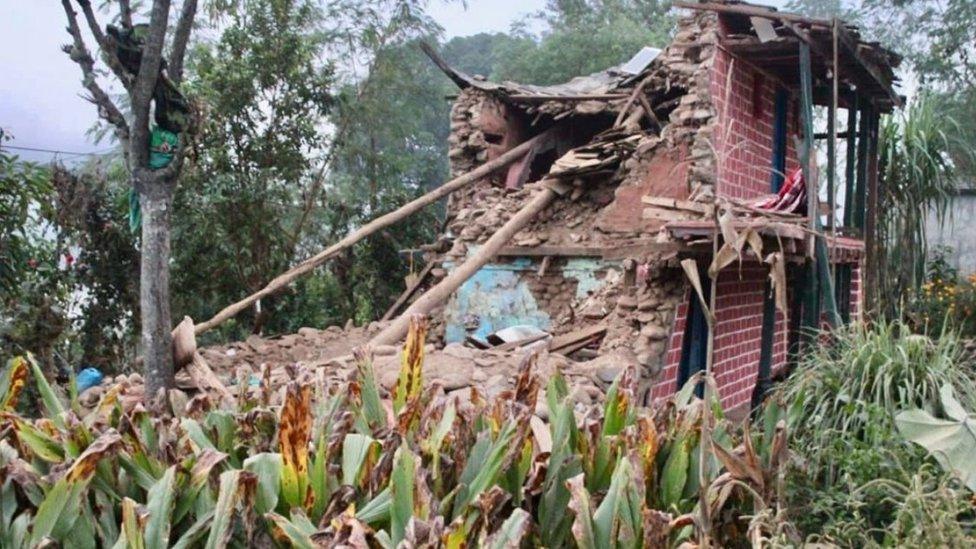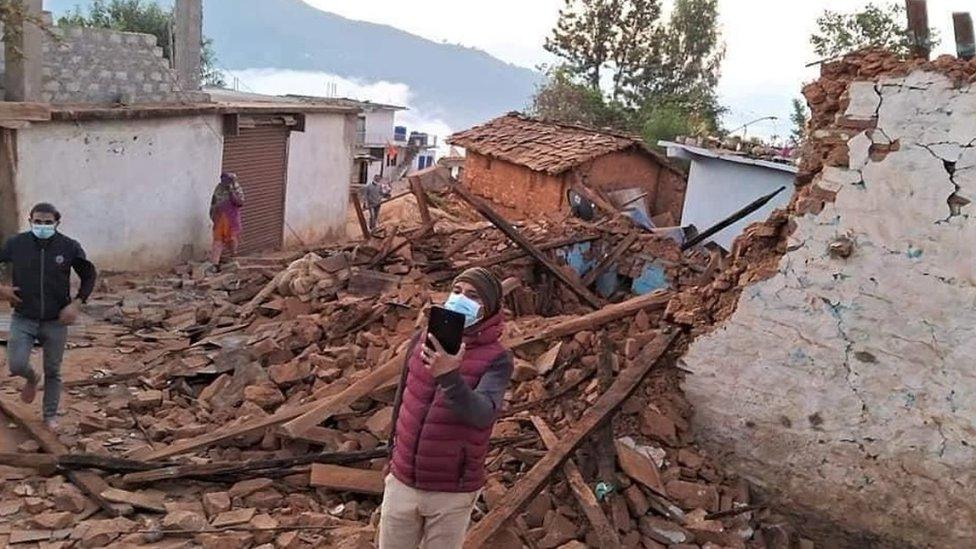Nepal earthquake rescue efforts ongoing
- Published

Nepal is home to a large section of the Himalayas, one of the highest mountain ranges in the world
A strong earthquake has hit parts of Nepal in South Asia.
The earthquake late on Friday night measured a magnitude of 5.6 on the Richter scale, according to scientists at the US Geological Survey.
It has badly affected two areas called Jajarkot and neighbouring West Rukum that lie around 500km (310 miles) west of Nepal's capital Kathmandu.
Many of the people who live there live in mud houses that have been badly damaged.

The Richter scale measures how strong earthquakes are
It's named after the scientist Charles Richter who invented it
You're unlikely to notice a quake below 4.0 on the scale.
5.0 and above can cause some damage to old buildings
6.0 & above is considered strong and can damage earthquake resistant buildings
7.0 or above is likely to cause some to collapse
8.0 or above is felt for hundreds of miles and is likely to destroy many buildings.
Earthquakes: what are they and what causes them? (2018)
More than 150 people have died and at least 100 people have been injured as a result of the natural disaster, local authorities say.
The earthquake also triggered landslides, which are making it more difficult for rescuers to reach the people who need help, though some emergency workers have got through.
Tremors, which means shaking, could be felt in cities as far away as Delhi in neighbouring India.

The Nepali Prime Minister Pushpa Kamal Dahal has ordered health workers, helicopters and the army to help with a big search and rescue operation to help people affected by the quake.
It's not unusual for there to be earthquakes in Nepal as the country is based in a mountainous area where there is a lot of seismic or earthquake activity.
Nepal is home to a large section of the Himalayas, one of the world's highest mountain ranges.
